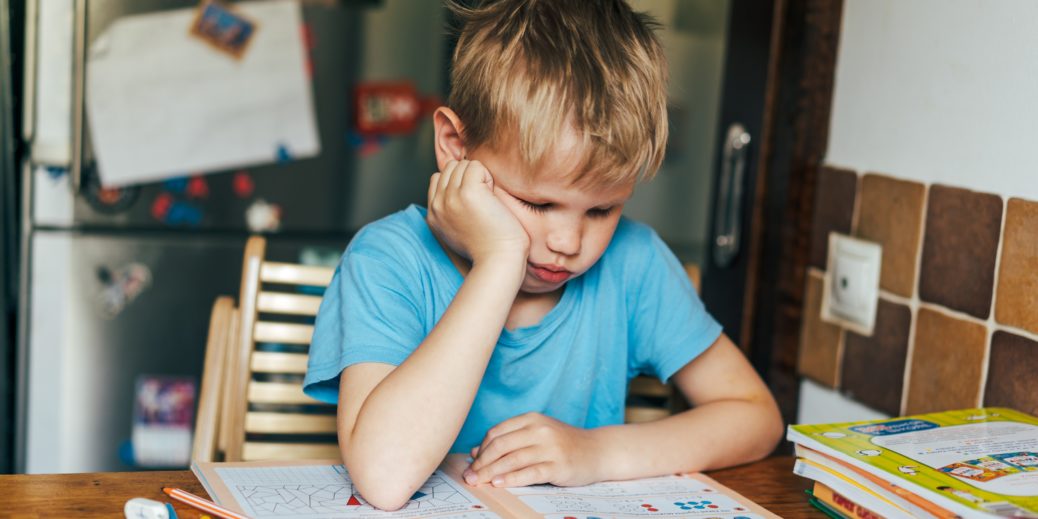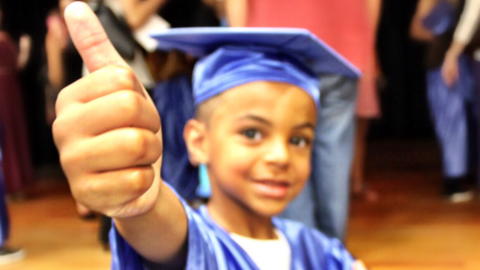*Originally published on Becker’s Insights on Early Learning blog.
What happened to kindergarten?
Is kindergarten the new first grade?
Are kids failing kindergarten or is kindergarten failing them?
Over the past two decades, kindergarten classrooms nationwide have become increasingly academic as a result of the pressures of high-stakes testing set forth by the No Child Left Behind Act of 2001 (NCLB).
Contrary to NCLB’s vision, many kindergarteners are being left behind. Kindergarteners are failing kindergarten, and their parents are feeling like failures because their children aren’t performing in consonance with “grade level standards.” However, today’s kindergarteners are required to do things that many simply aren’t developmentally prepared to do. And sadly, preschools are rapidly following suit.
A study through the Alliance for Childhood explains how kindergarteners are now “under great pressures to meet inappropriate expectations, including academic standards that until recently were reserved for first grade” (Miller & Almon, 2009, p. 11). Kindergarten used to consist mostly of activities like dramatic play, outdoor exploration, arts and crafts, music, block play, show ‘n tell, sensory play, fine motor activities, gross motor activities, naptime, storytime, and promoting pre-reading skills only (such as learning the alphabet).
Now, school days comprise mostly of literacy and math instruction or taking/preparing for tests (Miller & Almon, 2009). Kids must sit still for longer periods of time and are being rushed to read. A recent University of Virginia study found that the percentage of kindergarten teachers who believe their students should be reading by the close of kindergarten increased from 30 percent in 1998 to 80 percent in 2010 (Bassok, Latham, & Rorem, 2016).
This “too much, too soon” approach is especially problematic for our underserved populations who often enter school already behind in terms of school readiness skills due to inequality of opportunity.
And what about play? Play-based learning, unfortunately, is often the first thing to go due to strict schedules and over-crowded curriculums.
This is not to say that kindergarteners shouldn’t be challenged academically. They should be, at levels appropriate to their personal development. In fact, many kindergarteners (usually the ones who had the privilege of attending high-quality preschools) are able to keep up with the accelerated rigor. But, at what cost?
The American Academy of Pediatrics (2018) believes “play cannot really be overstated in terms of mitigating stress, improving academic skills, and helping to build the safe, stable, and nurturing relationships that buffer against toxic stress and build social-emotional resilience” (para. 3). Play and exploration are also woven throughout the 10 National Association for the Education of Young Children’s accreditation standards for identifying high-quality childcare, preschool, and kindergarten programs. And as technology revolutionizes, playtime must take precedence over screen time.
Most teachers want to incorporate more play, but report simply not having the time or support from the administration to do so. They are exhausted from fighting a daily instructional battle that is not fair to them nor their students.
Are we doing right by children in expecting them to master more and more objectives at earlier ages so they can eventually pass a standardized test all the while expanding the already present achievement gap and robbing them of their childhood right to play?
No.
Should we be rushing them to read/comprehend while bypassing critical pre-reading skills such as phonemic awareness and phonics OR teaching complex math skills before building basic number sense?
Double no.
Some states are taking action by passing laws that require recess, but let’s continue building the momentum. It will take a unity of effort from all stakeholders to make real change. Let’s advocate for the health and well-being of our kids to local, state, and national leaders and policymakers, highlight the developmental research, honor flexibility within the curricula, expand opportunities for high-quality preschooling, spotlight social emotional learning, and create ample opportunities for play in school, at home, and throughout the community.
And let’s trust in our very hard-working, talented teachers on the front lines, most of whom believe that high-stakes testing does more harm than good.
We can do better.
Our five and six-year-olds deserve better!









